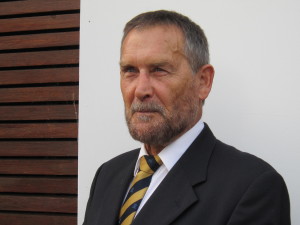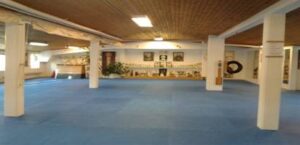Ett brev fyllt ev medkänsla och praktiska råd om hur vi tillsammans och Du som individ kan komma ur denna period av prövning starkare.
To all the instructors and students,
I hope this message will find you and your families in good health.
I am writing to share some thoughts with you, about the situation we find ourselves in these stressful times. In recent
months we have been confronted with a total new situation, because of the corona virus. Restrictions from total
lockdowns in some European countries to lesser restrictions in the case of Sweden have been implemented. Some of us
may not only worry about our own health and safety, but also about the health and well being of our family members.
This corona virus has shown all of us that there are no boundaries between people, we are all interconnected. Somebody
sneezes in China and there will be a reaction in Italy. One person shakes hands with a person in Italy and there will be a
reaction in Spain, France or Germany. The idea of interconnection between people is no longer just a theory, but is now
a demonstrated fact. We are all in this together.
However if we look at it from a positive side, if the virus has no boundaries finding a cure for it will have no boundaries
either. Let’s hope that the medical researchers World Wide will find a cure soon.
For the first time in 40 years, the European IKGA had to postpone its annual Seminar which was to be held this year in
Belgium. Most senior members have attended the European seminars for forty years without missing one.
Saiko Shihan first came to Sweden in 1980, when we laid down the beginnings for a future IKGA Europe, and he has
attended every seminar since then. The European seminars have been the highlight of the year, for both students and
teachers alike. It provided us with the unique opportunity to train together with students from all over the European
continent as well as meeting up with old friends. Let us hope that we are able to hold it in 2021, I am sure that we will
appreciate it even more.
It seems that recently some countries have lifted some restrictions. I have been told that in Hungary they are allowed to
teach classes again. But most countries are still forced to keep their dojos closed.
Even though some countries have lifted the restrictions, it will take a long before we can safely teach groups again in a
closed environment.
When confronted with a new situation it forces us to tap into our recourses and become more creative. I have received
reports from various European countries informing me that they are teaching their own students by either Skype or
Zoom. In the case of Sweden classes are held in a park.
The question is not what the conditions we find ourselves in, but with what attitude we meet those conditions.
At this stage we do not know how long this situation will last; we do not have control over it as yet. However what we do
have control over is our own attitude towards the situation. Even though we humans are all interconnected, it is up to
each one of us as, individuals, how we deal with the situation
We have spent years of physical training, now it is up to us to tap into our inner resources, to find out what stuff we are
made of. What was once considered only the theoretical or mental part of our art has now to be tested. The easy and
happy times are periods of rest, and the hard times are periods of training. Hard times provide opportunities for gaining
strength and character building. If we look upon both in this light we will not be overcome by either.
In short we have two ways of confronting the situation, as pain or as opportunities. To complain and find this situation
unbearable, this will result in depression and loss of energy. As a Karate -ka this actually leaves us with ONE choice only.
An old saying comes to my mind. “WHEN THE GOING GETS TOUGH THE TOUGH GET GOING”
Training helps to manage stress, fight off illnesses, and maintain positive mental attitude. Now, more than ever, it is
important to pay attention to your mental and physical health. Here are some key points that may be of help in your daily
routine.
1: Firstly, it is of no use complaining about the things you cannot do, instead concentrate on things you can do.
2: Establish a daily routine; make a schedule of what you want to add to your daily or weekly routines in order to keep up
your training.
3: If you cannot go to your dojo, or gym and you have to exercise at home, use what you have at your disposal. You can
use chairs or stairs for step up training, or weights can be replaced by water bottles etc.
4: If you are a competitor and you do not have a competition coming up, it is good to include the use visualization in your
schedule. You can improve mental skills such as confidence, focus, goal setting, and relaxation. All this will enhance your
physical performance.
5: If you are an instructor think of different ways of making your classes more interesting and structured. Write down
your ideas, so that when this is all over you will have improved your teachings and become more confident. Done
consistently, these actions may help you reestablish feelings of control and comfort while supporting your health and
well-being.
IT is not what we go through that counts but what we learn from it.
Awhile ago I watched an interesting TV program about human well-being and our immune systems. It was about
Serotonin, which is a neurotransmitter, a chemical messenger that is passed between nerve cells. It is found in the body
for basic well-being. Flooding your brain with dopamine and serotonin, not only increases feelings of euphoria, but also
empathy and love. A depressed person probably has a low level of serotonin in the brain.
But here’s the point, we can increase serotonin levels through our actions and thereby our well-being. The giver of a
friendly act of course feels better, and in this way becomes rewarded himself, but the recipient of a friendly act also feels
better.
The recipient in all likelihood treats the next person kindly, and in this way creates a chain reaction. Not only that, if
someone witnesses a friendly act this person will in turn be affected by it as well. In other words, kindness stimulates
kindness. Only by watching someone else perform a friendly act, it has increased our serotonin level and stimulated our
immune system, the result is we simply feel so much better. Stimulating our immune system will help us against the
virus. Here we have a win, win situation.
The uplifting power to do something for somebody else is remarkable, even if it is just a phone call. In times of social
distancing we have to maintain social closeness.
In the same TV program, they had made a study as to what happens to the brain when we meditate. They found out that
after a few month of daily meditation of let’s say 20 min the pattern of the brain waves are changing. This in turn has an
effect upon our daily lives in the way we start to look at ourselves and the world around us.
Also it was proven that we not only can cope with stress better but become more kind in dealing with the people around
us. Try it!
Take care of today, never mind the next hour, take care of this one. Take care of the moment, every hour as it comes
along in full confidence relying on the power of our own inner nature.
Above all, even this will pass away is a good motto to keep in mind when things come up that are hard to stand.
I am looking forward training with all of you at the next European Seminar in Belgium.
Take care and stay healthy.
/ I de Jong


